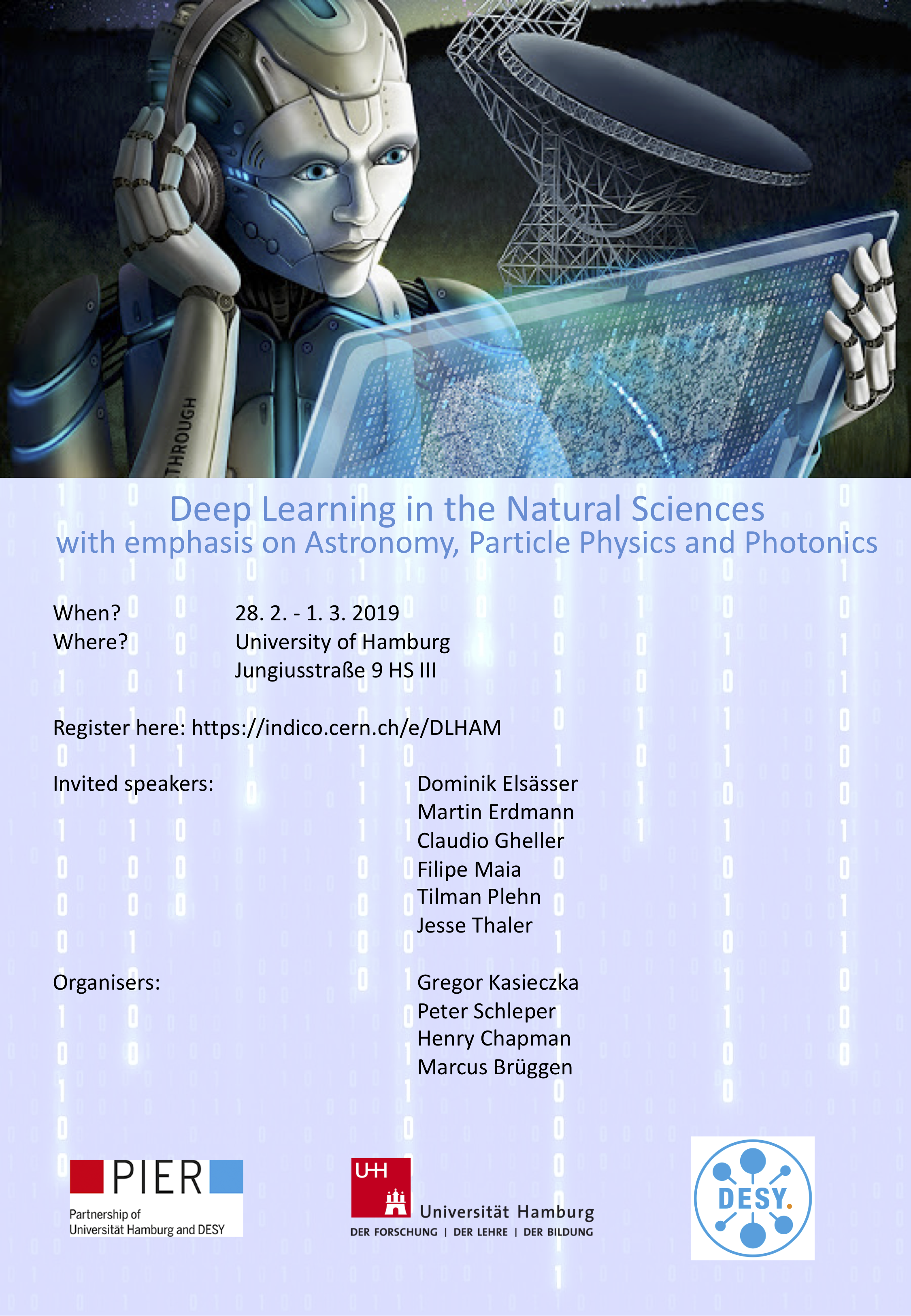Deep Learning in the Natural Sciences
→
Europe/Berlin
Hamburg
Hamburg
Description
A workshop to connect researchers working on Deep Learning in the natural sciences with a focus on astronomy, particle physics and photonics.
The program consists of invited speakers, submitted contributions and student talks with generous room for discussion.
The workshop will take place at:
Universität Hamburg
Jungiusstraße 9, Hörsaal I (Wolfgang Pauli-Hörsaal)
20 355 Hamburg
Participants

